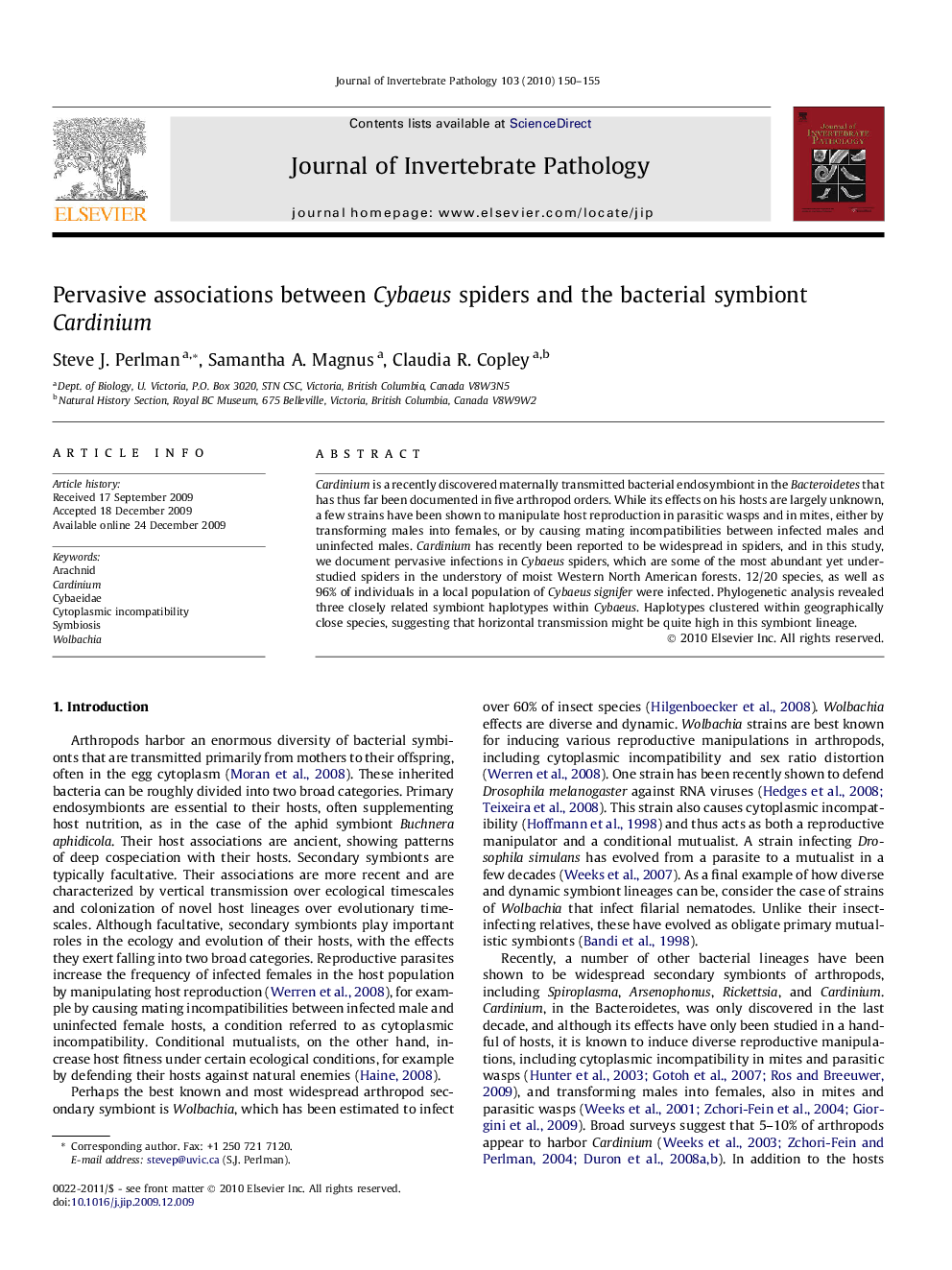| Article ID | Journal | Published Year | Pages | File Type |
|---|---|---|---|---|
| 4558298 | Journal of Invertebrate Pathology | 2010 | 6 Pages |
Cardinium is a recently discovered maternally transmitted bacterial endosymbiont in the Bacteroidetes that has thus far been documented in five arthropod orders. While its effects on his hosts are largely unknown, a few strains have been shown to manipulate host reproduction in parasitic wasps and in mites, either by transforming males into females, or by causing mating incompatibilities between infected males and uninfected males. Cardinium has recently been reported to be widespread in spiders, and in this study, we document pervasive infections in Cybaeus spiders, which are some of the most abundant yet understudied spiders in the understory of moist Western North American forests. 12/20 species, as well as 96% of individuals in a local population of Cybaeus signifer were infected. Phylogenetic analysis revealed three closely related symbiont haplotypes within Cybaeus. Haplotypes clustered within geographically close species, suggesting that horizontal transmission might be quite high in this symbiont lineage.
